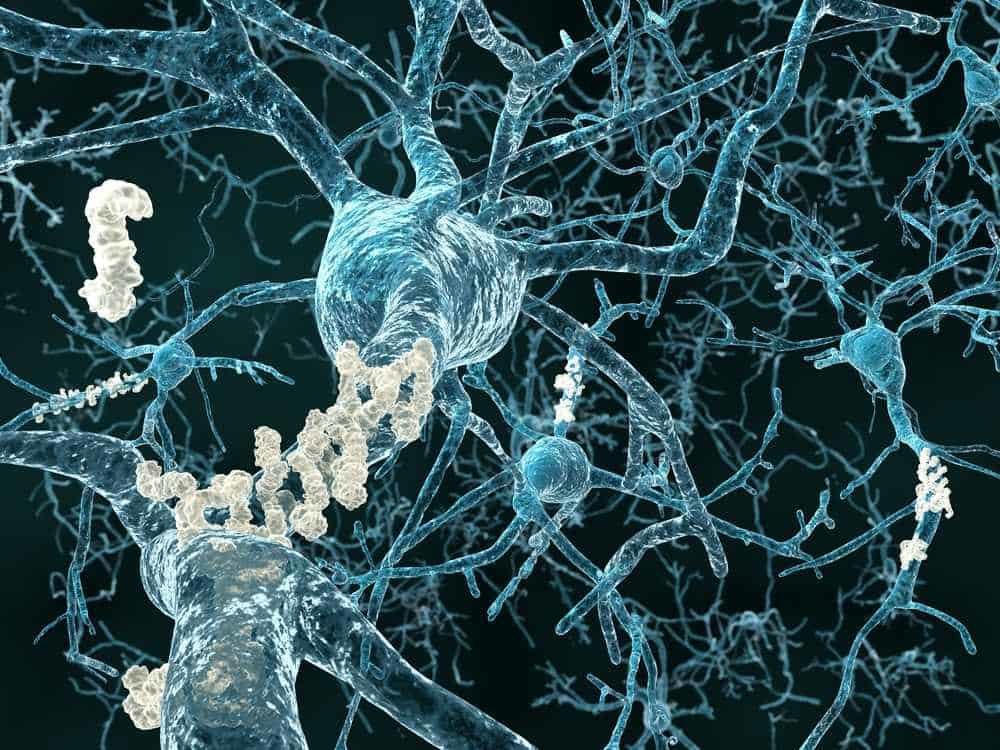
Is There a Connection between Diabetes and Alzheimer’s?

Although a direct and causal relationship between diabetes and Alzheimer’s disease has not yet been found, there is a growing evidence to suggest that those suffering from diabetes, especially type 2, are more prone to developing symptoms of Alzheimer’s disease at some point in their lives.
Other types of dementia are also being linked to type 2 diabetes, although the scientific community lacks consensus on whether diabetes can be among the causes behind the onset of these various types of dementia.

Although a direct and causal relationship between diabetes and Alzheimer’s disease has not yet been found, there is a growing evidence to suggest that a link may exist
The Link between Diabetes and Alzheimer’s
It’s natural for us to be a bit skeptical about a possible connection between Alzheimer’s disease and diabetes, but once we understand the kind of damage that diabetes havocs on the body, that connection becomes entirely probable.
Among the many downsides of suffering from diabetes, one is the damage to the blood vessels which may ultimately result in vascular dementia, a form of dementia that results from brain damage caused by improper flow of blood to the brain.
Alzheimer’s does result from changes in the brain, however restricted blood flow may not be the cause behind its onset. Research is now trying to identify a more direct connection between the effects of diabetes on the brain and the subsequent causation of Alzheimer’s disease. A major point of focus is to observe the way type 2 diabetes impacts the brain’s ability to consume sugar as well as its response to insulin.

Alzheimer’s does result from changes in the brain, however restricted blood flow may not be the cause behind its onset
Cognitive impairment of a very mild nature is already a symptom of type 2 diabetes, whereby those who suffer from such impairment find their cognitive and memory components weakened as they age.
Usually, it has been observed that sufferers of type 2 diabetes begin to show symptoms of cognitive impairment either before or with the onset of Alzheimer’s disease. Of course, as the research into the potential link between Alzheimer’s disease and diabetes progresses, scientists are also hoping to get one step closer in finding a cure to both the diseases.
Managing Risk
Once contracted, diabetes is not curable as of now and can only be managed through a proper diet and sufficient exercise with the end goal of maintaining the optimal sugar level in the blood. Alzheimer’s is also not curable, and since there is a possibility that diabetes increases the risk of getting Alzheimer’s disease, it is better that the risk of getting diabetes is minimized.
Not only Alzheimer’s, but you can also avoid many other complications that result from diabetes such as an increased risk of contracting heart disease, getting a stroke, damage to the eye, kidney disease, and digestive problems.
In order to manage your risk of getting diabetes, the best way to go about it is to trust your healthcare providers. The trick with offsetting any potential diabetes-causing habits which you may have is to regularly monitor your blood glucose levels, the cholesterol levels in your blood, and your blood pressure.
Your goal is to maintain them at the most optimal level at all times, and if there are any spikes, then you need to identify what caused those spikes and kick those causing factors out of your life.
Diet is obviously a very major factor as far as the risk of getting diabetes is concerned. Consistently spiked blood sugar levels cause the onset of diabetes even if you are not overweight. Hence, know your limits when it comes to consuming sugar, and consume as little of it as possible to eliminate the possibility of a spiked blood sugar level.
Remember, all the food that you consume also converts into sugar in the blood, so the additional spoonful of sugar you take with your coffee is possibly already in excess of the level of sugar you should be consuming.

Diet is obviously a very major factor as far as the risk of getting diabetes is concerned. Consistently spiked blood sugar levels cause the onset of diabetes even if you are not overweight.
If you are already obese, then losing weight until you reach the optimal BMI with respect to your height needs to be your next target. Not only diabetes, but the onset of many other diseases and issues can be avoided if you maintain a proper weight. Exercising every day for at least 30 minutes can help you maintain weight, in addition to a proper diet plan that is balanced in protein, carbs, and vitamins.
More in Medical Conditions
-
Check Your Sodium Intake—Not All Salts You Eat Are the Same
Salt is one of the most basic and most important ingredients in cooking. There are a lot of variants of salt...
November 1, 2023 -
Worried About Diabetes? Here Are Some Common Myths
There are several myths about diabetes that are frequently reported as facts. Diabetes misrepresentations can sometimes be harmful, leading to an...
June 29, 2023 -
Many Patients Pay Their Medical Costs Out Of Their Pockets – Even With Insurance
With rising inflation, it has become difficult for people to even fulfill their basic necessities. They are more concerned about how...
June 6, 2023 -
What Is The Right Weight For Kids And How To Gain Weight Healthily
Keeping your child happy and healthy is the primary concern of every parent. Parents usually focus on providing their young ones...
May 12, 2023 -
Thyroid Disorders in Children: What Parents Need to Know
Thyroid disorders are not limited to adults; they can also affect children. The thyroid gland produces hormones that play a crucial...
April 29, 2023 -
Should Doctors Attend To Patients With ‘Do Not Resuscitate Tattoos’?
Doctors at the University of Miami hospital were confronted with a dilemma when a 70-year-old unconscious man with a tattoo “do...
April 3, 2023 -
Your Antidepressant May Not Work If You Keep Doing This One Thing
People use social comparison to measure their self-worth. Social comparison has been in existence since time immemorial, and it is as...
April 1, 2023 -
Pro Tips on Preventing Hair Breakage While Keeping Your Hair Moisturized at Home
Every one of us is thinking a lot about how to forestall hair breakage and keep them moisturized at home. Since...
March 22, 2023 -
Planning to Travel After Retirement? This is the Best Medicare Coverage for You
Does Medicare insurance go with you once you are out of the country? It’s currently open enrollment period, and while planning...
March 14, 2023















You must be logged in to post a comment Login